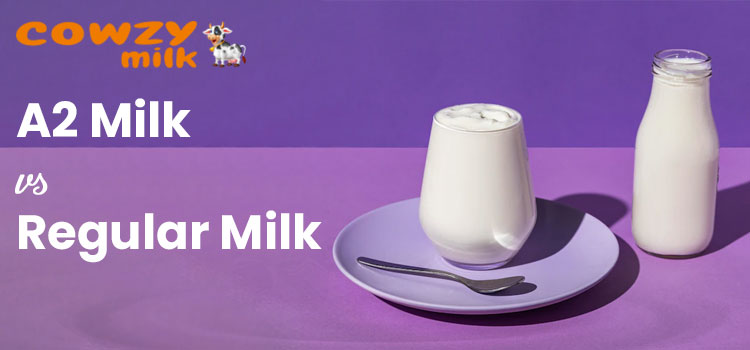As guardians, we are continuously searching for the best nutrition for our kids. There are different perspectives to consider prior to acquainting cow’s milk with babies. In this blog, we will look at the advantages and disadvantages of cow’s milk for babies, giving light to critical concerns for Ludhiana guardians. Before making any choices, understanding the benefits and drawbacks of involving cow’s milk as your child’s essential source of nutrition is important.
The Pros of Cow’s Milk for Babies:
- Convenience: Cow’s milk is generally available, making it an easy decision for guardians. Cowzymilk, a respectable cow milk suppliers Ludhiana, conveys top-notch cow milk that fulfills security guidelines and is a trustworthy wellspring of supplements for your kid.
- Affordability: In general, cow’s milk is less expensive than specialist infant formulae. Searching for top-notch cow milk at a reasonable cow milk cost in Ludhiana? Look no further than Cowzymilk! Opting for cow’s milk can assist families on a budget save money without sacrificing nourishment.
The Cons of Cow’s Milk for Babies:
- Allergies and Intolerances: In babies, cow’s milk sensitivity and lactose intolerance are common. If your child exhibits indications of hypersensitive responses, like rashes, hives, or gastrointestinal trouble, looking for clinical advice is important.
- Nutritional Imbalance: Cow’s milk might be healthfully deficient for newborn babies. It is lacking in supplements, for example, iron and L-ascorbic acid, which are fundamental for a child’s development and improvement. During this time, relying completely on cow’s milk as an essential source of food might bring about nutritional insufficiencies. It is recommended that you keep on breastfeeding or use the newborn child formula as your child’s essential nutrition of nourishment until he or she is at least one year old.
Considerations for Introducing Cow’s Milk to Babies:
- Age Recommendation: After your baby’s first birthday, the American Academy of Pediatrics suggests introducing cow’s milk as a primary beverage. Breast milk or infant formula should be the primary source of nutrition until then.
- Gradual Transition: When the time comes, it is better to gradually introduce cow’s milk. Begin by combining little amounts of cow’s milk with breast milk or formula and gradually increasing the ratio.
- Consultation with Healthcare Professionals: Each infant is unique, therefore before introducing cow’s milk to your newborn, talk with your pediatrician or a healthcare practitioner. They can offer customized suggestions based on your child’s individual necessities as well as any existing clinical worries.
Conclusion:
Cow’s milk can be a decent source of supplements for babies, however, it is significant to gauge the advantages and drawbacks prior to integrating it into their eating routine. While cow’s milk contains significant minerals and is advantageous, it may not supply the whole nourishment required during the first year of life.
Understanding your baby’s requirements and working with healthcare professionals are important stages in ensuring a safe and suitable transition to cow’s milk. You can make informed decisions and offer your kid the greatest possible start in their nutritional journey with the help of trustworthy providers like Cowzymilk in Ludhiana.





